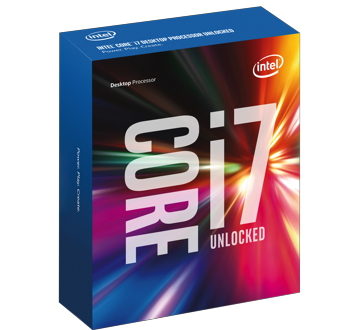With reports suggesting the new Intel Skylake CPUs will continue to be in short supply until the end of November, PCR explores why the channel is hit by stock shortages like this, the effect it has on resellers and what brands can do to keep shortages to a minimum…
In our industry there’s perhaps nothing more frustrating than having massive demand for a product or service that’s in short supply.
But for various reasons, sometimes vendors, distributors and resellers just don’t have enough to go around.
“Stock shortages are always a perennial problem for manufacturers trying to match the demand with the supply equilibrium,” says Entatech MD Dave Stevinson. “It’s an opportunity for all distributors to increase their holdings so the resellers do not suffer lost sales.”
In this day and age of next- day delivery, global launches and sophisticated e-commerce technology, customers have never had it so good. They expect the world – but they certainly don’t expect to have to wait. Unfortunately, that’s what a lot of resellers, system builders and customers have had to do regarding Intel’s new 6th gen Core processors (aka Skylake) of late.
Several resellers complained of the shortage to PCR back in August, with one senior distribution source now saying the CPUs will likely be in short supply until the end of November, particularly the high-end i7- 6700K CPU. The situation is similar to what Nvidia experienced last year, with its 970 and 980 graphics cards in short supply towards the end of 2014, due to high demand.
Chillblast’s sales director Ben Miles tells PCR: “[Skylake is] the worst shortage we’ve ever seen. I have less than 50 per cent of what I need – and it’s likely due to yield issues.”
A CCL Computers spokesperson adds: “We got a healthy allocation but can’t get a firm date for more. Any orders we take, we can fulfill – but once stock runs out we can’t. It doesn’t fill our customers with confidence.”
When life feeds you lemons, make lemonade – so they say – and some firms are taking this approach when dealing with stock problems. For example, Overclockers UK offered customers an older X99 6-Core system for £50 less than an equivalent i7 Skylake system, in a bid to promote older, similar stock.
Miodrag Relic, business development director for Caseking group (which owns Overclockers), explains: “In the first week of this promotion, we sold as many CPUs that we usually sell in a month – all X99 processors.
We were the only ones in the UK who promoted it like that and it looks like we were correct. By putting emphasis on X99 as well as Skylake, we haven’t experienced as much of an issue.”
So why do we get stock shortages in the first place? Intel says in this instance it’s because of high demand and ‘short term supply limitations in some areas’, with more CPUs due to hit the market, but that’s not always the case.
Some vendors have said it’s likely because Intel wants to clear older Broadwell stock before pumping more Skylake CPUs into the channel, but PCR’s distribution source believes a lack of materials (silicon) is preventing Intel from producing as many Skylake chips as it would like to.
Of course, poor forecasting and long production/delivery times can also cause some products to be in short supply, particularly if they’re being manufactured in the Far East.
On the other hand, some will argue that brands like to suggest there are stock shortages – usually around an upcoming product – to drum up consumer demand. Earlier this year, Apple said the Apple Watch had sold of the first batch of pre-orders, but it wasn’t clear how much inventory Apple had, with some reports suggesting the watch hadn’t sold as well as planned.
Again, in September Apple said that the iPhone 6S Plus was selling out, before it had even gone on sale, with stock shortages reported.
Whatever the reason, serious stock shortages affect the entire supply chain. But aside from having to deal with frustrated customers, shortages can also push up prices, with etailers engaging in price wars.
On the flipside, an item that performs better than expected is always a nice bonus.
Cooler Master tells PCR that early sales of its Master Case PC customisable tower were “incredible”. A spokesperson says: “We forecast and it’s important not to bring too many units in, but at the moment we don’t have enough for demand – it’s been much better than we anticipated.”
Through better forecasting, stock shortages can be minimised. But what can be done to prevent them?
“A distribution product manager must work closely with the vendor to anticipate the run-rates and mitigate against demand spikes,” advises Enta’s Stevinson.
 PCR Tech and IT retail, distribution and vendor news
PCR Tech and IT retail, distribution and vendor news




